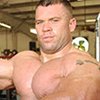When one of my clients, Peter Edgette, was trying to break my own world record and become the youngest person to bench press 600 pounds raw, we worked together to help him find the internal motivation he needed to complete the lift. We came up with the following statement, one he would say to himself as he pursued this record: "As I close the door to 500 pounds, I open my door to 600 pounds." Edgette was leveraging the power of positive thinking, also known as affirmations, to help him reach his goal.
Thomas Edison would never have invented the lightbulb had he been constantly contemplating the dark. The Wright brothers never would have flown had they not dreamed of soaring through the skies. Positive thoughts manifest as positive things and negative thoughts as negative things. It's as simple as that.
Why are Affirmations Important?
Just as you need to train your body to build the physical strength to lift weight, you also need to train your mind to manage the constant internal dialogue we all have with ourselves. This dialogue helps bring forth whatever you tell yourself. If Edgette had repeatedly thought, "I'm not sure if I can lift this much," he would have approached the bar with less certainty, less confidence.
Much of weightlifting success is all about managing the things we tell ourselves. You can live a positive life of abundance and break old PRs, or you can live a life of doubt and negativity that holds you back. It all comes down to what you tell yourself. Take Edgette, for example. He did break my record and is now the youngest person in the world to bench 600 pounds.
Where Did the Idea of Using Affirmations Come From?
The use of affirmations can be traced to ancient eastern religions, and its effectiveness is backed by modern neuroscience. I myself first learned about them years ago when I read "Self-Mastery Through Conscious Autosuggestion," a book written in 1922 by a French pharmacist named Emile Couse. In his daily work, Couse observed that when he made positive suggestions about the medicine he gave customers, the results were better than when he simply filled a customer's order.
Intrigued, Couse set out to develop a universal affirmation he could give to his patients. He created one such affirmation that is popular to this day: "Every day, in every way, I am getting better and better." The affirmation was simple, short, optimistic, and could apply to just about anyone, in just about any situation.
When asked about his healing powers, Coue responded, "I have never cured anyone in my life. All I do is show people how they can cure themselves."
In effect, affirmations program you for success. Their power has been endorsed by purveyors of positive thought including Norman Vincent Peale, Joel Osteen, Anthony Robbins, Arnold Schwarzenegger, and many other famous bodybuilders.
How Do You Choose the Right Words?
I've learned a great deal about how to use affirmations from hypnotist and coach William C. Smith. Smith believes that for affirmations to be useful, they must be personalized, precise, stated in present tense, and focused on what you want, not on what you don't want.
Part of the challenge of using affirmations is finding the right words. We created Peter Edgette's affirmation very deliberately. His affirmation was, "As I close the door to 500 pounds, I open my door to 600 pounds."
We chose the words "the" and "my" intentionally. It's not my door or your door or anyone's door. Peter tells himself that "the" doors—whoever those doors belong to—are now closed. Then he changes the word to "my." When it's his door to 600 pounds, he has the power to open it.
The affirmation helps Peter condition his mind to leave behind something he no longer wants to own, and take ownership of what he does—to do what he needs to do to achieve his goal. It's the same principle Steve Johnson used when he set a new U.S. deadlift record. There were many elements—nine, in fact—that went into his preparation for what would be a record lift. One of them was his affirmation, "I give myself permission to deadlift 909."
How Often Should You Repeat Affirmations?
I recommend repeating your affirmation out loud at least 20 times a day. To make it even more effective, say your affirmation to yourself slowly to help you fall asleep. If you are the type of person who falls asleep right away, say it to yourself 10 times before getting into bed.
When I first started helping my clients with affirmations, I suggested they say "Every day, in every way, I am getting better and better" to themselves every time they went to the bathroom, which worked well for them. Smith suggests saying it every time you see your reflection.
Whatever you use to remind yourself to say your affirmation, the idea is to repeat it frequently throughout the day to implant the thought deep into your subconscious mind.
To get faster and even more effective results, write down your personal affirmation 10 times in the morning and 10 times in the evening. You can also write messages to yourself and put them up around your house. If your goal is to bench press 300 pounds, tape an index card with the number "300" on it to your bathroom mirror or above your kitchen sink, wherever you'll be sure to see it repeatedly during the day. Whenever you see it, repeat your affirmation.
Creating and repeating your own daily affirmations can start to take effect immediately. Diligently repeat it to yourself for a week, and the change can be pronounced. Repeat if for a couple weeks, and it can change your life.

